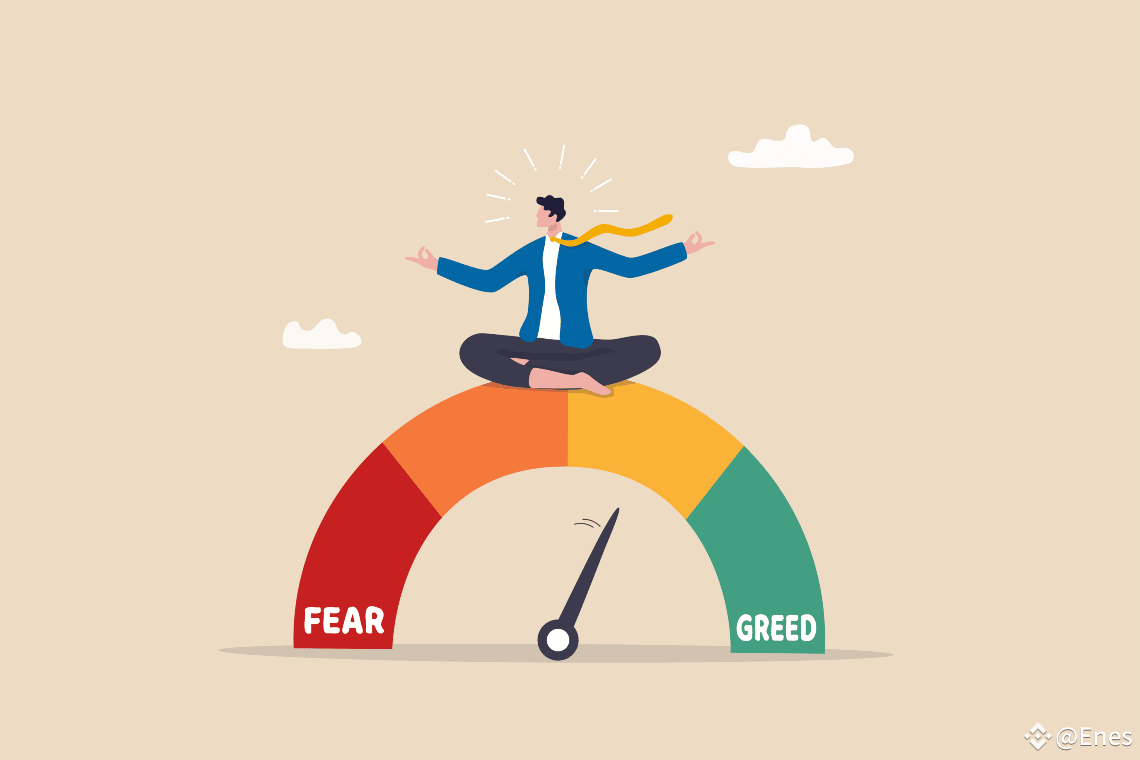Greed vs. Discipline: Winning the Investor’s Mind Game
Managing your mind plays a big role in investing as much as managing your finances. Many numbers and graphs are discussed, but the enthusiasm driving each person forward makes a difference at the end of the day. There are two sides to this mental area: greed and discipline. Knowing these factors and learning how to use them is key to winning in investing.
The Allure of Greed in Financial Markets
Many people find greed to be a very powerful feeling. It claims to offer fast rewards, wealth, and success, all only a bit away after picking the proper stock. During bull markets, people become more and more interested in getting rich. Many people look for ways to earn money, jump on bandwagons they don’t fully grasp, and risk more than they’re used to. People don’t notice greed until it becomes almost deafening. For many investing people, it can make them ignore sensible investment ideas. It routinely causes investors to buy pricey yet risky assets, use more capital than budgeted, or keep resources in things that are out of line with their goals. Although it may seem exciting when it happens, greed usually clouds our judgment and harms important plans for the future.

Discipline as the Investor’s Anchor
When greed goes rampant, discipline stops us from getting lost. It helps an investor stay steady whether the markets are up or down. When you discipline yourself, you follow your scheme, make strategic choices, and resist immediate actions. Although achieving great profits is fun, proper investing relies mainly on discipline. It keeps your behavior consistent, limits risk, and focuses your plans on logic rather than feelings. Good investors know that discipline doesn’t mean limiting yourself—it offers the freedom to avoid unnecessary changes. It makes the situation less stressful and more soothing.
Emotional Decision-Making and Its Consequences
If we make investment choices based on emotions, we can later regret our actions. Fear in a fall and excitement in a rise often make us forget about reason. Greed leads investors to leave their usual care behind. Instead, discipline helps children notice how they feel and encourages them to manage their emotions. Doing such things as buying high and selling low due to emotions can slow your investment growth. You win the investor’s mind game by noticing when your emotions affect your thinking and deciding how to act logically instead.
Risk Management Starts with Self-Control
Managing risks is key, and controlling your urges makes investing more successful. Greed causes investors to take chances that they don’t need to. It tells you there are fast, painless ways to earn money. When investors discipline themselves, they properly review risks and make their decisions aware of all the potential results. Following the correct mix of assets, doing stop-losses, and diversifying is all about discipline to stop you from making decisions driven by greed.
The Danger of Overconfidence in Hot Markets
During good market periods, many people feel a sense of investing superiority. Achieving success in the past can make traders think they know everything, which is driven by greed. In a moment, regulators let their guard down and base actions on the belief that firms will grow. If you’re overconfident, you may risk too much, be led by the latest trends, and ignore possible problems. Being successful in the investor’s mind game means being prepared, knowing that there are no guarantees and the market doesn’t owe you anything. Being disciplined when the numbers are good reminds everyone to keep an eye out.
Market Timing Is a Greed Trap
Trying to predict the perfect moment to buy or sell is common among those who are greedy. It depends on the belief that people can take advantage of low prices by buying and selling at too high prices. Yet, history makes it clear that it is extremely difficult for even professionals to predict the market. Avoiding just a handful of the most prosperous days would greatly reduce your return. Discipline teaches you to consistently keep investing instead of thinking you can always predict how things will change. Realizing that the right time may never come is vital to developing a good investing habit.

Long-Term Vision Requires Mental Strength
Being able to think for the long term is simple in theory, but putting it into practice needs strong willpower. The next few months matter more to greedy people. It makes you want to stop following your strategy if you speedily win or lose money. Investing for the long run requires avoiding distractions, ignoring daily changes, and staying focused on aims you may reach years later. It is hard not to follow everyone else’s example when you suddenly hear stories of people getting rich. Concentrating on investing requires you to be disciplined, think about your actions, and trust the basics—not just what happens in the market.
Building a Plan and Sticking to It
Any investor should know what objective they are going for. What investor you are is important, and the key is ensuring you know how to get where you want to go. Greed will use tempting things to distract you from where you should be. Discipline is a way to help you remember what Your journey is all about. A good plan keeps you from doing something unnecessary when markets become exciting or troubling. A disciplined investor prepares and follows a strategy, just making small improvements when the market situation demands it.
Learning to Say No in a Culture of Yes
The financial world often looks up to those who take big risks and reap quick rewards. Social media, news, and even work discussions always present “can’t miss” opportunities for investors. The climate encourages greed. Investing in every new style, secret stock purchase, or exciting trade can cause you to lose money more often. Discipline requires you to be able to say no. Stay away from interruptions. Fighting the urge for excitement with flashy short-term trends. Don’t sell your position because you’re afraid. Only those willing to reject any appealing prospects can be said to play the mind game as an investor.
Keeping an Eye Without Living in Fear
Investors who succeed watch over their portfolios occasionally and not all the time. Keeping a close eye on your assets often leads to emotional responses whenever the market changes. Greed can take over if the numbers rise a little, but panic may appear when temporary losses are made. The following discipline helps you stay on schedule, checking your grades every few days, not every night. Investing with this strategy means you don’t react too much, and your investments get the chance to grow. You must learn to apply your mind power when needed and give yourself a break from it.
Making Rebalancing Easy
Rebalancing your investments is a useful tool for helping yourself keep your discipline. This action makes investors shift money out of losers and into winners by bringing their allocation of assets back to their goals. If you’re greedy and avoid correcting an unbalanced portfolio, rebalancing helps you stick to your strategy. It’s more than just working your technique; it also works your mental focus. It helps you realize that achievement isn’t about what’s trending but about sticking with what is effective.
How to Calm Your Mind in a Swift, Demanding Society
It is often the trait investors forget about the most when investing. The market takes time in today’s world, which is full of instant updates and fast results. Greed is impatient; discipline accepts and uses waiting. It takes patience to allow investments to improve—yet it is a requirement. Gaining patience stops you from selling too early and helps you rely on what your strategy offers. It means drawing on our mission rather than reacting to ongoing developments. Being patient is necessary when trying to get an investor on your side.
Conclusion
Daily, investors find themselves deciding between their greed and their discipline. This conflict in thinking affects how portfolios develop, decisions are made, and success is achieved. Greed makes us pay attention, tempt us, and make us act without thinking. It offers a lot but doesn’t often live up to its promises without causing harm. By being patient and intentional, discipline allows you to build a true fortune that lasts over a long period of time.
You win the investor’s mind game by understanding that emotions exist, but you should control them instead of the other way around. It includes choosing a plan, knowing what you hope to achieve, and trusting established rules. In every part of investing, the market will challenge what you believe, how confident you are, and your endurance. When you act from discipline rather than wishful thinking, you create a base that will stay steady no matter what.
You aren’t truly successful in investing if you pursue every chance or react hastily to market changes. It involves being stable, choosing correctly, and building mental skills that will help you develop for the future. While being greedy can be exciting, being disciplined lasts and brings value for much longer. That outlook makes investors most likely to be in your corner.



